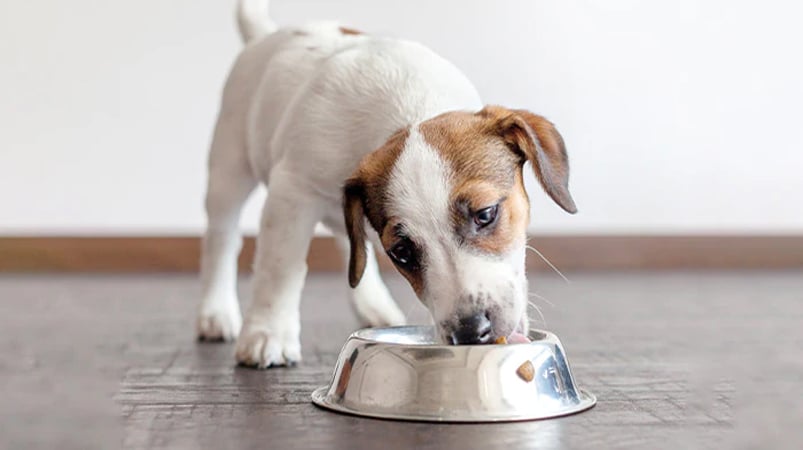Summer brings warm weather, longer days, and plenty of outdoor activities for both humans and their four-legged companions. As temperatures rise in the UK, it’s essential to adjust your dog’s diet and feeding routine to keep them healthy, hydrated, and comfortable. In this blog post, we will explore some essential tips on how to feed your dog during the summer season in the UK.
Hydration, the Key to Beat the Heat:
Proper hydration is crucial for dogs, especially during the summer months. Ensure that your dog always has access to fresh and clean water throughout the day. Consider placing multiple water bowls in different areas of your home, both indoors and outdoors, to encourage drinking. Keep an eye on the water level and refill it regularly to keep it fresh and appealing.
Wet Food and Moisture-Rich Treats:
During hot weather, you can incorporate wet food into your dog’s diet to provide extra hydration. Canned dog food or homemade meals with high water content can help keep your pup hydrated. Additionally, you can freeze treats like cubes of low-sodium chicken or beef broth, or make frozen fruit and vegetable treats, which will not only help cool them down but also provide additional hydration.
Adjust Portion Sizes:
Dogs tend to be less active during hot summer days, so it’s important to adjust their portion sizes accordingly. Speak to your veterinarian about determining the right amount of food to feed your dog during this season. Remember that each dog is unique, and factors such as age, size, breed, and activity level should be considered when determining their portion sizes.
Time Feeding to Cooler Parts of the Day:
If your dog tends to eat outside, try to schedule their meals during the cooler parts of the day, such as early morning or late evening. This will help prevent their food from spoiling quickly under the sun, and your dog will feel more comfortable eating in cooler temperatures.
Choose High-Quality, Nutrient-Rich Food:
Providing a balanced and nutritious diet is essential for your dog’s overall health and well-being. Opt for high-quality dog food that meets their specific nutritional needs. Look for options that contain real meat as the primary ingredient, along with a good balance of carbohydrates, healthy fats, vitamins, and minerals. Consulting with your veterinarian can help you make informed decisions about the best food options for your dog’s specific dietary requirements.
Watch for Signs of Heat-related Issues:
Keep a close eye on your dog’s appetite, energy levels, and overall behavior during the summer season. Loss of appetite or excessive panting may indicate heat-related issues or dehydration. If you notice any changes in your dog’s eating patterns or behavior, consult your veterinarian promptly.
Avoid Leaving Food Outside for Extended Periods:
During the summer, the heat can cause food to spoil quickly. Avoid leaving your dog’s food outside for extended periods, as it may attract insects or become unsafe for consumption. Serve your dog’s meals indoors, where you can monitor the food’s freshness and cleanliness.
Conclusion: Taking care of your dog’s dietary needs during the summer season in the UK is essential for their overall well-being. By ensuring proper hydration, adjusting portion sizes, providing nutrient-rich food, and being mindful of the timing and storage of meals, you can keep your furry friend nourished, cool, and happy throughout the sunny days. Remember to always consult with your veterinarian for personalized advice regarding your dog’s diet and specific nutritional requirements. How to Feed Your Dog in Summer Season in Uk
Follow the PNI Facebook page for the latest news and updates.









